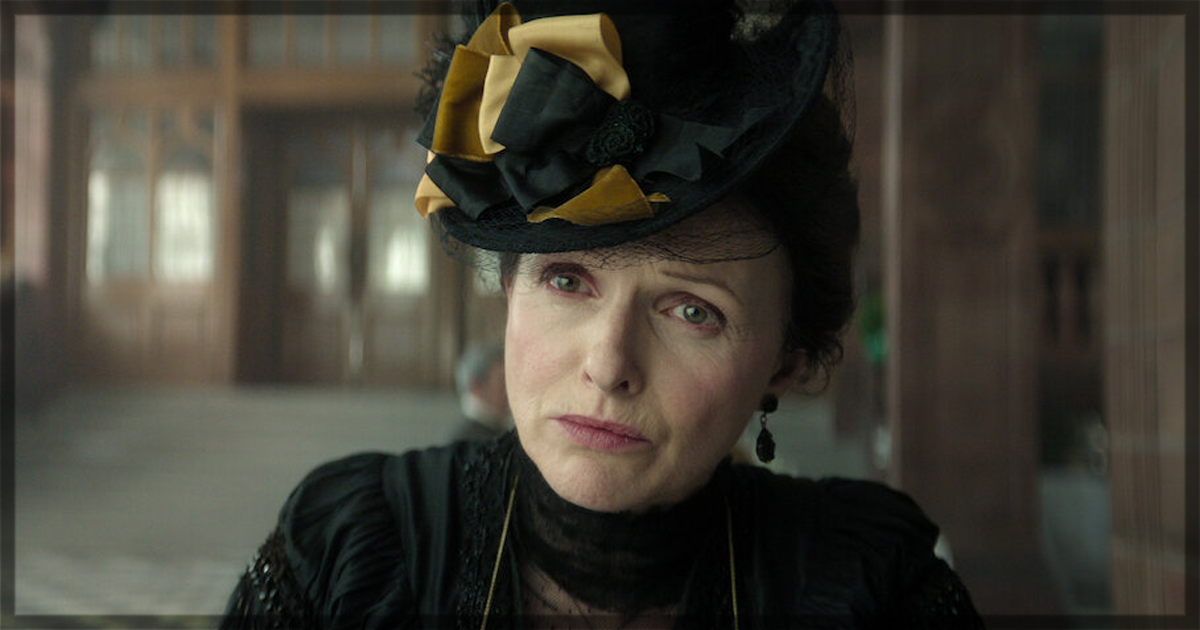Every episode of House of Guinness, Steven Knight’s newest television creation for Netflix, begins with a disclaimer and promise: “This fiction is inspired by true stories”. While based on many real people and events of 1860s Dublin (and further afield), House of Guinness is first and foremost concerned with being a rip-roaring good time. There are slow-motion action scenes, anachronistic needle drops, and growled expletives aplenty, set against the backdrop of dynastic struggle, civil unrest, international expansion, and some rich kids hoist by their own baser natures.
Sir Benjamin Guinness is dead. His four children Arthur (Anthony Boyle), Edward (Louis Partridge), Anne (Emily Fairn), and Ben (Fionn O’Shea) have convened in Dublin for his funeral – and the reading of his will. As the eldest son, Arthur has returned from a life of champagne and clubs in London expecting to take the Guinness crown, though he is not wholly sold on the realities of running the family business or following his father into Conservative party politics; for one, he would need to keep his homosexuality a secret. Edward, the second brother, is far more adept at and interested in the practicalities of making Guinness a global brand. Anne, married and in ill health, is concerned with the family reputation and philanthropy (as a prominent Protestant Unionist family, the Guinnesses are not popular with Catholic Nationalist “Fenian” rebels, both at home and among the diaspora). Ben has largely taken to drinking and carousing, though he hopes an inheritance will help him marry his sweetheart.
To the shock of all, the two eldest brothers are given sole joint ownership in Guinness and cannot walk away from their half without losing everything; Anne and Ben are cut out, reliant on the former’s husband and the benevolence of their elder relatives. Things must change – and fast. At the aid of all is Sean Rafferty (James Norton), the Guinness’ fearsome foreman, enforcer, and man for all seasons, who will see the Guinness family come out on top come hell or high water. But trouble comes knocking in the form of illegitimate Guinness heir Byron Hughes (Jack Gleeson, in a very welcome return) looking for his own fortune and Fenian organiser siblings Patrick and Ellen Cochrane (Seamus O’Hara and Niamh McCormack) looking to rid Dublin – and Ireland – of English influence. From the early moments of House of Guinness, it is clear nothing will go as smoothly as anyone hopes. “Our love is our bond,” Arthur and Edward say as they cut a deal around the business, but love is not enough when reputations are at stake and everything is to lose.
Boyle’s hot streak, kicked off last year with the quadruple punch of Masters of the Air, Manhunt, Shardlake, and Say Nothing, shows no sign of abating. He plays a frustrating, frustrated Arthur – incorrigible, fragile, yet able to command boundless love, if not respect. While Fairn’s and O’Shea’s characters are somewhat sidelined in the plot, they turn in delicate, engaged performances. Partridge is the least well-served of the main cast; Edward the goody-two-shoes is hard to make as engaging as his ne’er-do-well siblings, but hopefully he gets more to do in future seasons. The true scene-stealer – despite a somewhat dodgy accent – is Norton, who swaggers into the Knight hard-man role with boundless charisma; he, however, is not immune to human vulnerabilities, making him all the more compelling as he clings to his place in the Guinness power structure (the costume department addition of a tiny silver earring is a fantastic roguish touch).
One’s patience for House of Guinness will greatly depend on one’s patience for Steven Knight. The antics and stylings are deliberately irreverent, occasionally grating, and prioritise style over substance. But who said style cannot be fun? The soundtrack mixes Irish folk songs, often in modern recordings, with modern pop and rap music, featuring appearances from the likes of Kneecap, Fontaines D.C., Boygenius, The Scratch, and Derek Warfield & The Young Wolfe Tones. The effect is questionable; the energy is infectious.
A missed opportunity in House of Guinness revolves around its (mis)treatment of three key historical phenomena: the potato famine (recent memory), the Fenian Brotherhood and other Irish independence movements, and the New York diaspora (notably in the wake of the US Civil War). All three feel more like set dressing or inconvenient obstacles rather than baked-in atmospheric elements that would have given the show a sense of grander history. Furthermore, while the Guinness family is explained to be Protestant / Unionist and therefore controversial, they are otherwise portrayed as philanthropic, benign forces (except when Rafferty and his men are tasked with breaking up Fenian mobs). No mention is made of the Orange lodge founded by the family or the sectarianism they contributed to. Despite many comparisons to Succession, another show about rich heirs untouched by the politics they play in, there seems no bitter, knowing eye cast on their untouchability. True, House of Guinness never purports to be fully or truly historical (as its opening card makes clear), but the incomplete incorporation of these three real life elements makes the weaknesses of this pop retelling all the more glaring.
House of Guinness ends its first season on an explosive cliffhanger; if renewed for a second season, Knight and company may be able to deepen some underbaked themes and tie Anne and Ben more closely to the activities of Arthur and Edward. While not wholly satisfying, the first season is more than worth checking out, if only to see where Boyle’s, Norton’s, Gleeson, and their colleagues’ careers may be off to next.
House of Guinness Season 1 is now streaming on Netflix.
Learn more about the show at the Netflix site for the title.
You might also like…


